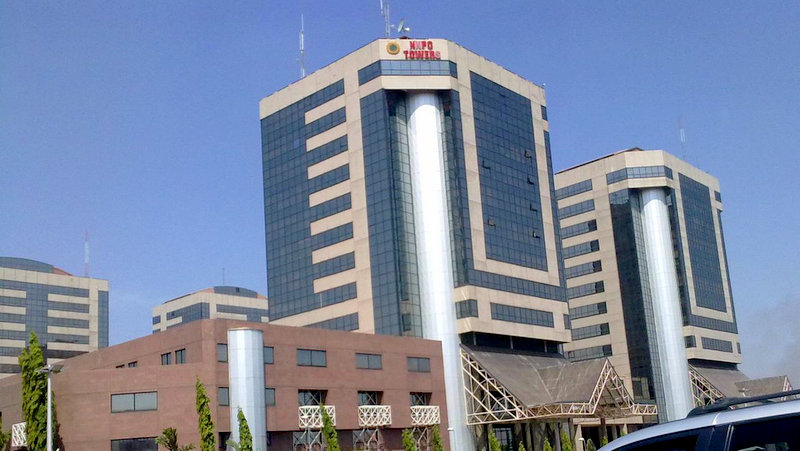
A new petrol import scheme put in place by the Nigerian National Petroleum Corporation, NNPC, is enmeshed in controversy as marketers accuse the management of the state oil firm of nepotism and of favouring indigenous oil firms that have godfathers in the Buhari administration.
Some marketers involved in the recently introduced Direct-Sale–Direct-Purchase, DSDP, crude oil swap arrangement by the NNPC say the scheme is worse in terms of transparency than the crude oil swap arrangement that obtained during the Goodluck Jonathan administration.
The marketers accuse the NNPC management of preferential treatment for allegedly approving a discriminatory price regime for different indigenous oil marketing firms participating in the scheme.
The DSDP scheme was introduced in March 2016 by the Minister of State for Petroleum Resources, Ibe Kachikwu, after he jettisoned the controversial crude-for-products arrangement, popularly called crude oil swap, by the previous administration as a strategy to cater for the country’s domestic need for petroleum products.
Mr. Kachikwu had said the new arrangement would entrench transparency in the crude oil-for-product transaction by the NNPC in line with global best practices, to give the country full value for its crude.
Under the scheme, the minister said, an open bidding process would ensure the crude-for-product exchange was conducted in a transparent manner to reduce the gaps inherent in the offshore processing arrangement, OPA involved in the swap deal of the Jonathan administration.
But some of the participating companies, among those awarded contracts early this year by the NNPC for the purchase and sale of Nigerian crude oil for 2017/2018, have accused the NNPC of giving preferential treatment to three indigenous oil firms in the allocation of crude oil.
Out of about 39 companies that emerged winners of the contracts announced in January 2017 were 18 Nigerian companies, pre-qualified to lift and trade on 32,000 barrels per day.
The companies include Oando, Sahara Energy, MRS Oil & Gas, AA Rano, Bono, Masters Energy, Eterna Oil and Gas, Cassiva Energy, Hyde Energy and Brittania U.
Others were North-West Petroleum, Optima Energy, AMG Petroenergy, Arkiren Oil and Gas Limited, Shoreline Limited, Entourage Oil, Setana Energy and Prudent Energy.
The DSDP involves these firms bidding for the NNPC’s daily allocation of 445,000 barrels of crude oil originally meant for local refining. The bid winners (expected to be firms who offered to pay the highest price) receive the crude to export and refine the crude and then bring back petrol to Nigeria.
“Nobody seems to understand the criteria NNPC is using to allocate crude oil to Oando, Sahara Energy and MRS Oil & Gas at prices lower than every other bidder,” one of the aggrieved marketers, who spoke to PREMIUM TIMES, said on Monday.
The marketer, who requested not to be named to avoid being victimized, said most other companies were surprised the three oil marketing firms were awarded the contract despite quoting lower prices in their respective bids.
“The DSDP contracts appear to be as corrupt as the infamous swap deals under the former administration. Even the discarded swap arrangement was more consistent in giving the same price to each supplier.
“For the first time, NNPC is departing from what has always obtained in such swaps for 40 years, by giving different prices to different companies for the same deliveries and the same work,” the marketer lamented.
But, the Group Executive Director, Crude Oil Marketing Department of NNPC, Melee Kyari, told PREMIUM TIMES in a telephone chat on Wednesday in Abuja that those criticizing the corporation got the whole concept of the DSDP wrong.
Mr. Kyari said apart from the bids each of the companies was expected to submit, the NNPC decided to impose additional obligations on the marketers who were willing to support government’s effort to rehabilitate and maintain its dilapidated infrastructures.
“The DSDP scheme is a volume business,” Mr. Kyari explained. “To get supply security, the NNPC went beyond the prices the individual companies offered in their bids, by putting different obligations on them.
“We asked some of them: Can you lend us (NNPC) money to repair our refineries and other infrastructures in the oil industry? Some of them made offers of between $200 million and $300 million.
Besides, Mr. Kyari said, considering that in the last 25 years the country was unable to develop its trading business, which traders in Europe took advantage of, the NNPC also decided to request some of the companies interested in the business to grow their in-country capacities.
“After all these additional responsibilities, the NNPC then asked the companies to give their best prices, which every bidding company did without NNPC’s prompting.
“Those who see the different prices others got are now asking for their prices to be reviewed without knowing the additional responsibilities given to them. I see it as nothing but greed, because they want to have everything,” Mr. Kyari said.
The NNPC spokesperson, Ndu Ughamadu, also defended the programme.
“The crude allocation is based purely on whatever prices the marketers offered in their bids. After an independent assessment, if such prices meet the price threshold set by the NNPC as the best bargain, it would be approved for them,” he said.
PREMIUM TIMES learnt that the Minister of State for Petroleum, Ibe Kachikwu, will address journalists on Thursday with the DSDP and its inherent controversy expected to be one of the major topics to be discussed.
An industry source however told PREMIUM TIMES the NNPC authorities modified the DSPD scheme Mr. Kachikwu introduced without recourse to him as minister in charge of the country’s oil and gas sector.
“I can tell you the minister is in the dark regarding the games the NNPC management is playing with their favourite marketers,” one source said. “I don’t know what he plans to say.”
Mr. Kachikwu did not answer or return calls on Tuesday and Wednesday.
END

Be the first to comment